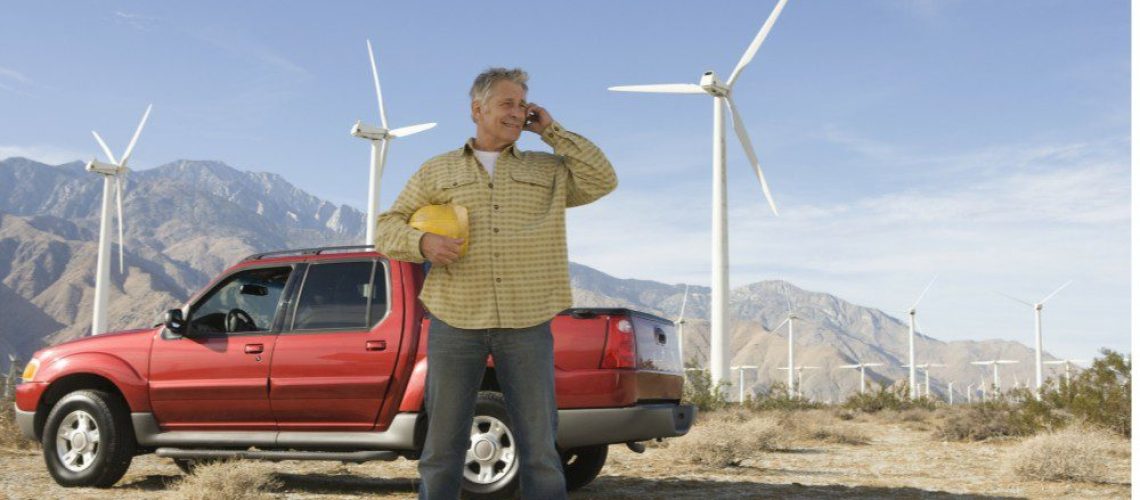There is a booming business centered around truck leasing, both for business usage and for personal use, but there are some major differences in how leasing works for these two categories. One of the really great things about truck leasing is that trucks usually have good resale value, and that tends to translate into high lease-end residual values. The reason that’s important is that it also means your monthly lease payments will be lower.
In this discussion, we’ll consider the differences between personal truck leasing and business truck leasing, so that you’ll have an understanding of whether it might be better to lease your new pickup truck or to buy it outright, for either personal or business use.
Personal Truck Leasing
Anytime you need a new pickup truck and you’re looking for low monthly payments, you will be much better off seeking a closed-end personal lease, rather than an open-end lease. When you lease a truck for your personal use, it’s the same thing as leasing a minivan, a car, or a sport utility vehicle. The lease will offer lower monthly payments than you would have to supply when purchasing a vehicle, and it may not be necessary to provide a down payment at all.
Most states will allow you to save on sales tax as well, so it’s very possible that leasing will cost you much less to get a new truck, and can even save you on your monthly payments. Before you make a decision on leasing or buying, you should keep in mind that leasing a vehicle is a good option for people who drive less than 15,000 miles per year, and who typically take good care of their vehicles.
Leasing also works best for those individuals who are not concerned about establishing ownership equity in a vehicle, and who have a stable lifestyle, which means they won’t need to obtain an early release from the terms of the lease. If you should have to terminate your lease prior to its actual end, that can be a very expensive proposition, and it generally involves more than simply paying some kind of termination fee.
It will usually require you to pay the entire balance of the lease, and depending on how far into the lease you are, that could be extremely expensive. If you think there may be a reason you would have to terminate a lease early, you should avoid leasing entirely, because it simply might be too impractical for your financial situation.
Another thing you should consider with leasing is how you intend to use the truck because if you do things which might tend to damage the body or the bed, that would be bad for leasing. You may end up having to pay for those damages when you return your truck to the leasing company because any wear and tear which is considered beyond normal will be your responsibility.
Of course, you could have these damages repaired before you return your truck to the leasing company, but the cost of those repairs will probably tend to negate the value you’ve achieved by leasing in the first place.
Commercial Truck Leasing
Commercial truck leasing is much different than personal truck leasing, first of all, because business vehicle leases are almost always open-end leases as opposed to the closed-end leases which characterize personal truck leasing. Open-end leases always have flexible lease end residuals and featureless structuring so a company can use the leased vehicle in any way it needs to, then pay for that usage at the lease termination.
Monthly payments will be higher for open-end leases, and the cost at lease termination will also be higher, although some of these costs are usually tax-deductible if the vehicle is used for business purposes. Commercial van and truck leases are offered by companies who generally specialize in fleet leasing, commercial rentals, and commercial equipment leasing, like we do at Corporate Fleet.
There are a number of advantages to leasing commercial vehicles as opposed to buying them outright. For example, there’s usually no upfront investment, and the monthly expenses will be lower as well, which means you can preserve your operating funds for more useful purposes. You also have very predictable expenses on your lease plan, which are made up of normal maintenance, fixed monthly payments, and any necessary service required by the vehicles.
Terms of your lease can be extremely flexible so as to suit your business needs, for instance, seasonal leases, short-term leases, daily rentals, a number of vehicle types, flexible payments, and even a buyback program at the lease termination. The majority of commercial truck leases are considered to be operating leases with off-balance-sheet financing.
That means that your commercial lease trucks don’t show up on the company balance sheet as an asset, therefore they will not affect your financial ratios. This, in turn, means you’ll be able to keep your credit options open and stay eligible for any needed loans. Truck lease payments are also tax-deductible and can reduce your alternative minimum tax liability.
Conclusion
Personal truck leasing is almost always done with a closed-end lease, featuring low monthly payments, a fixed lease-end residual value, and only offers tax benefits in the form of sales tax savings. The risk of loss of value is placed on the lessor, and in general, a personal truck leasing company works pretty much the same way when leasing a car, a minivan, or sport utility vehicle.
On the other hand, a commercial truck lease will generally be an open-end lease so as to provide more flexibility to the company leasing the vehicle. There will be lower monthly payments associated with a commercial lease, and it’s not usually necessary to provide a down payment. Business truck leases also preserve capital, and carry a number of tax benefits, as long as vehicle usage is primarily for the business. The loss of value risk in the case of a commercial truck lease will be placed on the lessee.

